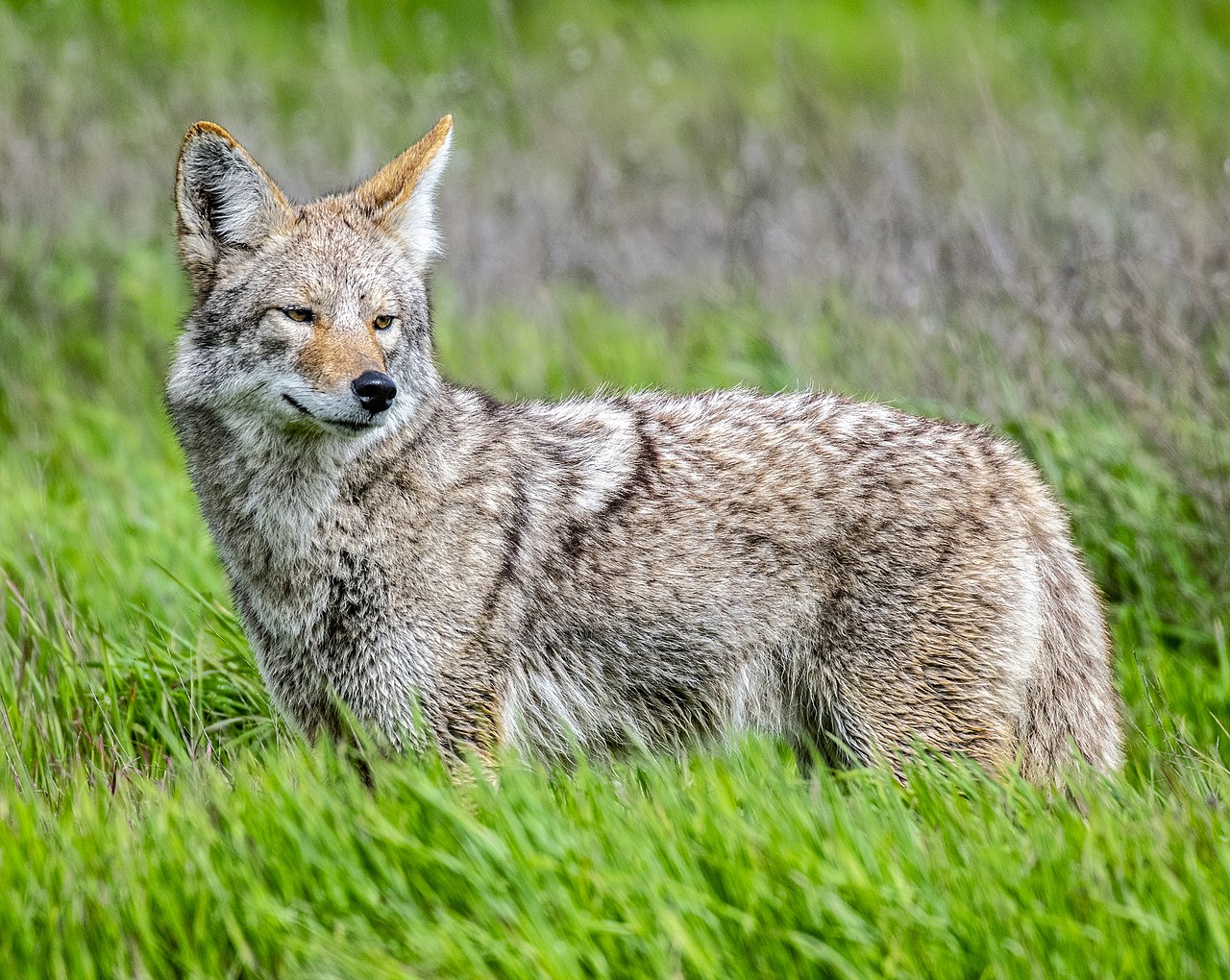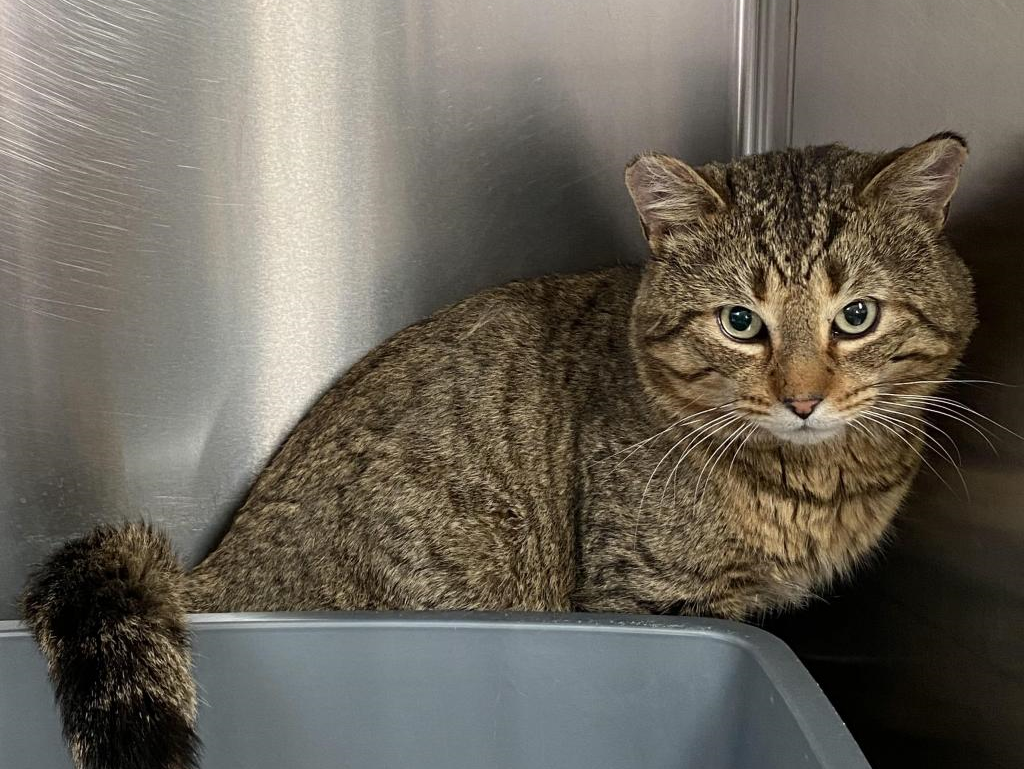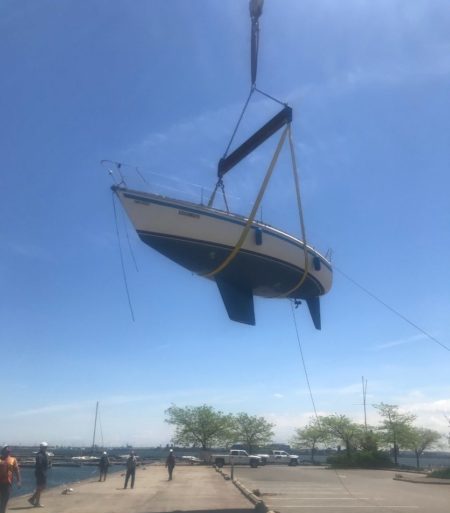March 27, 2024 — City of Burlington
The City of Burlington is reminding residents about steps they can take to manage coyote sightings during denning and pup season.
Coyotes typically give birth between April and May, with the average litter size around four to seven pups. Coyote sightings and encounters normally increase in the spring and summer while coyotes protect their den and pups begin exploring. If you see a coyote, keep your distance and the animal will most likely avoid you.
While naturally wary of humans, coyotes will seek food and shelter in residential neighbourhoods when they are being fed on purpose or by accident. The top five things residents can do to help deter coyotes include:
1. Never feed coyotes
Feeding coyotes, on purpose or by accident, teaches them to depend on human handouts and can cause them to become too familiar with humans. This familiarization can lead to aggressive behaviour around people and dogs.
2. Never leave pets unattended
Coyotes may see pets as a threat to their territory and may attack, especially when there is a den site nearby. Always keep dogs on a short leash (less than six feet long) when walking outdoors. Make sure your cats and dogs are not left alone outside, even in your fenced backyard.
3. Keep a tidy property
Residential neighbourhoods are an ideal coyote habitat with access to water, shelter and food sources like garbage, pet food, fruit trees and birdfeeders. Make sure your property is tidy and clear of garbage, food, brush and wood piles which are ideal den sites for coyotes or other wild animals that attract coyotes.
4. Inspect your property
Make sure spaces around and under decks, sheds and similar structures are closed off with wire screening that extends at least 20 centimetres under the ground.
5. Consistently haze coyotes
Discouraging coyotes takes vigilance. Ongoing efforts by the entire community to haze coyotes can help to re-instill their fear of humans and stop unwelcome behaviour.
Coyote sightings are common in Burlington but hazing, inspecting your property, and avoiding attractants are all things we can all do to make sure coyotes stay wild animals and stay away from people and pets. We look forward to increasing the frequency of our education pop-up sessions to accommodate residents busy summer schedules.
Kerry Davren, Director, Bylaw Compliance
Use one or more of these hazing techniques every time you see a coyote to help move it out of a residential area:
- Stop. Don’t run.
- Pick up small children and pets.
- Yell loudly;
- Wave your arms and make yourself look as big as possible;
- Use air horns, whistles, bang pots;
- Throw small rocks, large sticks, cans and/or rubber balls near the coyote;
- Spray the coyote with water from a garden hose or a water gun filled with vinegar.
- Back away slowly.
Report coyote sightings online at www.burlington.ca/coyote. Call 9-1-1- if a coyote poses an immediate threat or danger to public safety.
Educational opportunities
Residents can request an audit of their yard for coyote attractants by Animal Control staff by contacting Service Burlington via email (city@burlington.ca) or phone (905-335-7777).
Additionally, Animal Services are continuing to host educational pop-up sessions. Every Thursday through the spring and summer months, residents can drop by various City facilities to learn about coyote-proofing their property, and what to do if they see a coyote. Whistles used for hazing coyotes are also available for free. Dates, locations and details regarding pop-ups are available at burlington.ca/coyote.
Burlington is a city where people, nature and business thrive. Sign up to learn more about Burlington at burlington.ca/subscribe and follow @CityBurlington on social media.
Quick facts
- Hand and ground feeding wildlife on private or public property is prohibited by the City’s Animal Control By-law (60-2005).
- The City’s Lot Maintenance By-law (49-2022) requires waste, compost, pet food and animal food be stored in a clean and well-maintained manner so as to not attract rodents, vermin, insects, pests or wildlife, or create a health and safety hazard, save and except as permitted under the City’s Animal Control By-law.
- Contraventions of By-law 60-2005 or By-law 49-2022 may be subject to a fine.
Links and resources
- Lot Maintenance By-law (49-2022)
- Animal Control By-law (60-2005)
- Learn more about living with coyotes at www.burlington.ca/coyote
- Reporting coyote sightings helps Animal Services identify and monitor coyote den locations. Report a coyote sightings online at www.burlington.ca/coyote
- Read the Council approved Coyote Response Strategy that includes an escalation process to deal with various levels of coyote interactions with residents and pets.
See also Local-news.ca’s deep-dive into coyotes and humans here.





